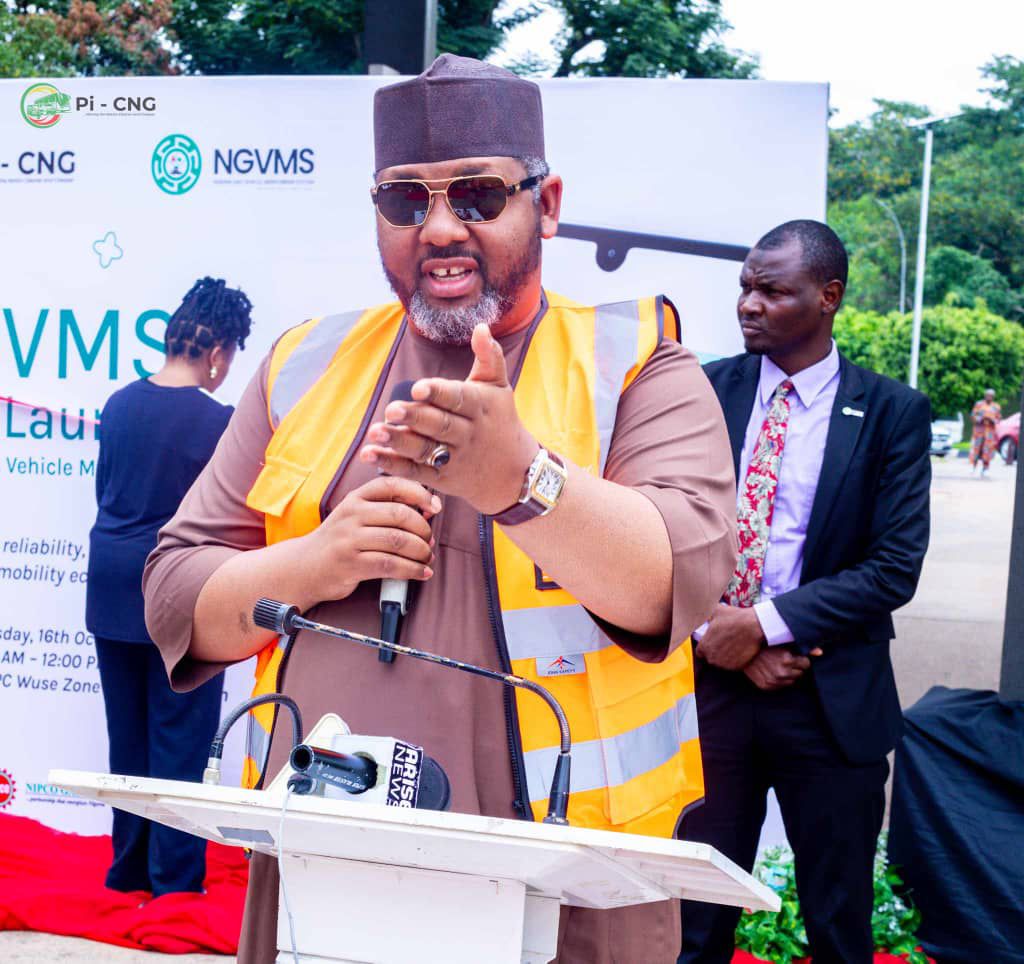The Federal Government has launched the Nigerian Gas Vehicle Monitoring System (NGVMS) to promote safety, accountability, and public confidence in the use of Compressed Natural Gas (CNG) across the country.
Minister of State for Petroleum Resources (Gas), Rt. Hon. Ekperikpe Ekpo, unveiled the system on Thursday at an NNPC Retail Station in Abuja.
He said the initiative is part of the government’s efforts to ensure the safe conversion and operation of gas-powered vehicles nationwide.
“The NGVMS will ensure that only vehicles converted at accredited facilities with certified kits can access CNG at approved stations,” Ekpo explained.
“This system provides end-to-end oversight from conversion to refuelling to guarantee the safety of citizens and the integrity of Nigeria’s CNG ecosystem.”
Ekpo described the initiative as a key component of President Bola Tinubu’s Renewed Hope Agenda and the Decade of Gas Initiative, aimed at making CNG an affordable and sustainable energy choice for Nigerians.
Chairman and CEO of the Presidential Initiative on CNG (PiCNG), Ismaeel Ahmed, said the country has already attracted over $1 billion in private sector investments into the CNG value chain.
Ahmed explained that the platform will allow authorities to track CNG consumption per vehicle in real time.
“The NGVMS will enable us to record the volume of CNG gas dispensed per vehicle, with real-time online data analytics available at the push of a button,” he said.
He noted that the pilot phase, which began in April 2024 after months of design and collaboration, will run in select stations across the six geopolitical zones to test the system before nationwide deployment.
“We are proud to say the NGVMS is 100% Nigerian-designed and developed,” Ahmed said.
“This shows what we can achieve under the right leadership and vision provided by President Bola Tinubu.”
At the event, leaders of various transport unions commended the federal government for introducing the CNG programme, saying it had helped cushion the impact of fuel subsidy removal.
They said that through the initiative, members have received free CNG kits, buses, and tricycles, leading to lower transport fares and reduced food prices.
However, the union leaders appealed to the government to prioritize commercial vehicles and expand CNG stations nationwide to make the system more effective.


